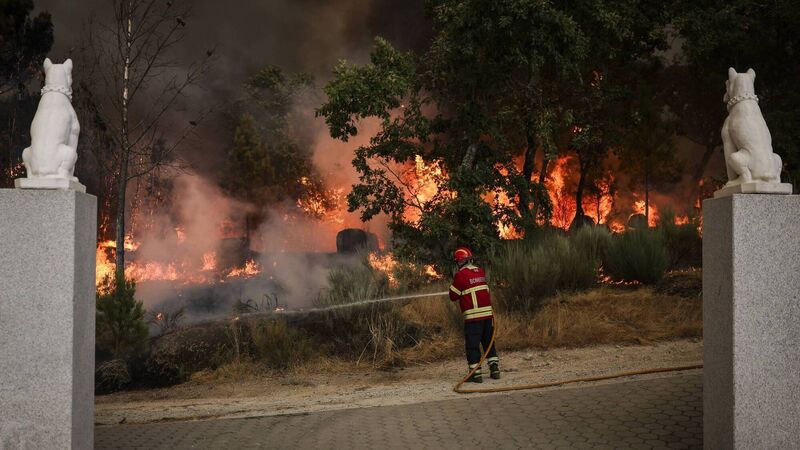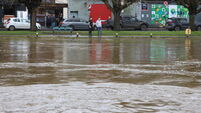Europe’s summer of extreme weather caused €43bn of short-term losses, analysis finds

A firefighter tries to extinguish a wildfire approaching Benvende village, in Trancoso, Portugal on August 14, 2025. Mediterranean countries including Spain, Italy and Portugal have been badly affected by extreme weather over the summer. Picture: Getty Images
The violent weather that battered Europe this summer caused short-term economic losses of at least €43bn, according to an EU-wide estimate, with costs expected to rise to €126bn by 2029.
The immediate hit to the economy from a single brutal summer of heat, drought and flooding amounted to 0.26% of the EU’s economic output in 2024, according to the rapid analysis, which has not been submitted for peer review but is based on relationships between weather and economic data that were published in an academic study this month.
Check out the Irish Examiner's WEATHER CENTRE for regularly updated short and long range forecasts wherever you are.













